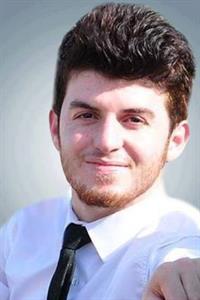Intellectuals and Serving the System
 1/21/2019 12:34:27 PM
1/21/2019 12:34:27 PM
8873 View
Lashkr Qadir
+
-
Global communities are interested in the work of intellectuals such as thesis, theories, writings and treatises for the reason that intellectual constructs and ideas are strictly representative of reality, and they do not represent ideological understandings. The nature and peculiarity of their scholarly status give them permissibility to participate in the academic institutions, the social system, and the political process.
The duties of intellectuals are to analyze, to write, and to produce theoretical-objective understandings based on reality, in other words, to derive theory from reality. Moreover, the concern of intellectuals is to think, to scrutinize, and to ask philosophical and moral questions regarding the issues of society. Sometimes it is thinking outside the proverbial box or drawing the curtain and speaking about the unspoken. Their analysis and vision cannot include the subjective biases of society. The strategies, thoughts, and understandings produced by intellectuals should be the product of intellectual inquiry and reflective understandings. From this viewpoint, the role of intellectual thought is perceived to lead society, and their contributions to have a positive effect on cultural, political and societal change which reinvents a different way of perceiving reality for a given society. Arguably, this kind of participation, awareness, and understanding could reflect a change from self-centered and localized thought to universal societal consciousness and culture understandings.
In Kurdish society, before the Kurdish revolution of 1991 against the Iraqi regime, the intellectual thought was monopolized and controlled entirely by the Kurdish parties, specifically the Kurdistan Democratic Party (KDP) and the Patriotic Union of Kurdistan (PUK) in a way that intellectual elites were seen directly involved in the world of political movements alongside the political hierarchies. Even though after the uprisings in March and April 1991, it was noted that Kurdistan was following the same direction that reflected an unchanged mechanism that attached the intellectual elites to political parties and situations. Intellectuals should not be biased or influenced by a specific political or social ideology and should only consider reflective, conscious, and rational thoughts outside of the political view, in turn, seeing the political process as a whole.
The historical, political experiences have shown that the political powers within the political system have used the works of intellectuals to mislead the citizen's social consciousness and awareness. As a result, it has created a perceived negative situation in Kurdistan due to the dereliction of duties in part of the intellectuals and political hierarchies.
Next, the three main points of duties and responsibilities of intellectuals will be discussed.
1. The social system and intellectuals.
There are so many researches (sociological) on intellectuals. Some intellectuals are insolated from the everyday regular social interaction and their environment, their social relations are very (Un-dynamic). Therefore, their awareness of social issues does not reflect a correct representation of the current social reality. In isolation, their condition helps them to have less false consciousness, intellectuals are not affected by social norms or the struggles that the environment puts on them. Thus, this condition gives them an obscured representation in societies issues. If intellectuals are viewed from this perspective, then intellectuals are neglecting to interpret the current social conditions in society, produce a limited understand and awareness, and cannot convey an accurate and unbiased understanding of the social reality thus misleading society.
2. The political system and intellectuals.
Intellectuals must expand the boundaries of thoughts in the political system and bring innovation. On the contrary, most intellectuals get affected by the ideology of a specific political power or the psychology or mindset of the masses. In general, intellectuals might lose their focus and identify with a specific political power and undermine the role of objectivity. Intellectuals should stay the course and reflect the reality of the political environment. Intellectuals should report and describe reality as they are trusted to do so. It is the responsibility of the intellectuals to represent the truth in order for individuals in society to make informed decisions that reflect the accurate representation of a given political power in society.
3. The cultural understanding and intellectuals.
Within any given pluralistic society, there are many cultural perspectives and norms. The responsibility of intellectuals is shaping thought and influencing people through an intellectual interpretation of reality and reasonable assumptions. As stated above, the works of intellectuals must be free of cultural biases and influences from the mindset of their own culture. For radical changes, intellectuals should work on developing the cultural views and bring new understanding in that aspect. In the past, the political and cultural views have been based on tribal, religious, and party politics which in turn have created a sub-culture or the mainstream culture within a given community. The concerns are that these perceptions are formed without considerations, implications, and consequence for society. Members of different communities are not trained or lack the ability to ask profound questions that affect society as a whole and cannot move over the changing paradigms of their lives either socially or politically.
Translated by Sonya Mahmood.